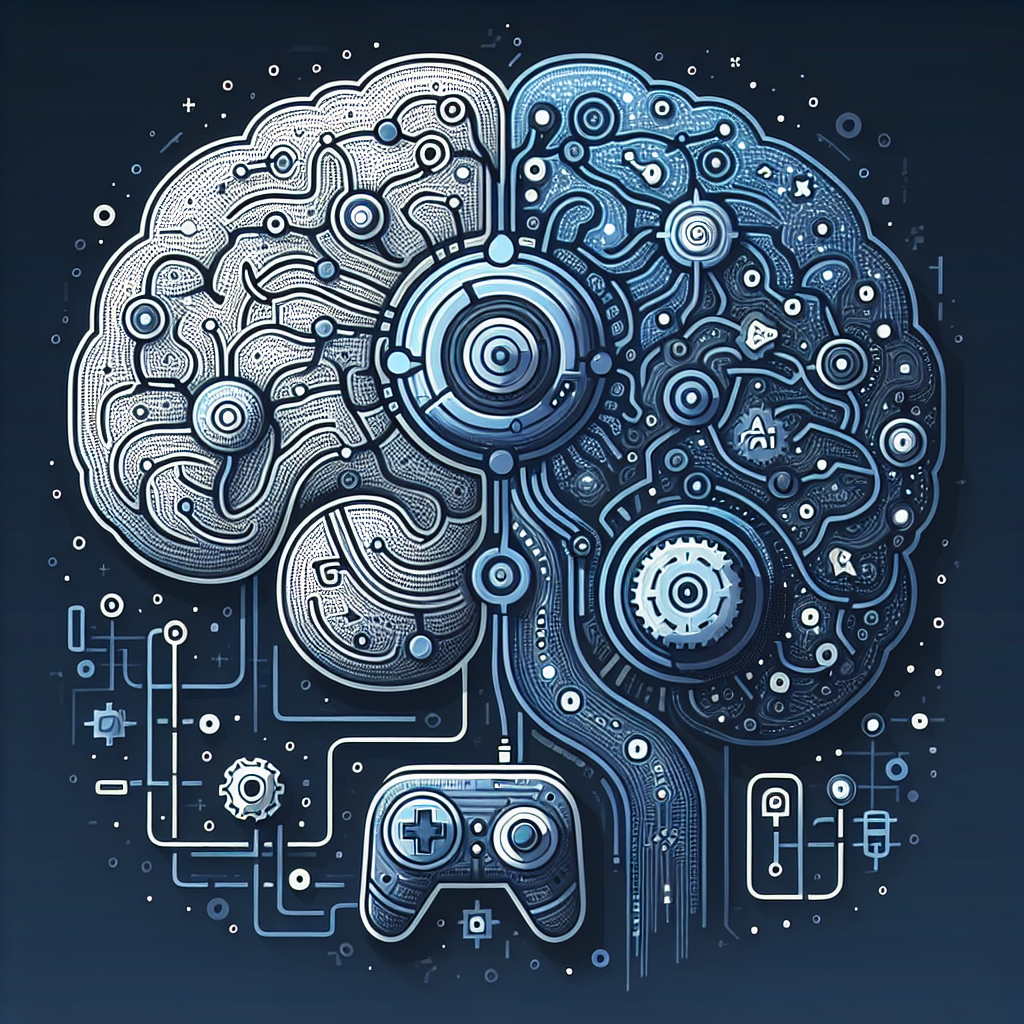The Influence of AI on Game Mechanics
Artificial intelligence (AI) has become a major player in the gaming industry, influencing everything from character behaviors to game environments. AI technology has evolved significantly over the years, and developers are constantly finding new and innovative ways to incorporate AI into game mechanics. In this article, we will explore the influence of AI on game mechanics and how it has transformed the gaming experience for players.
AI in Game Development
AI in game development refers to the use of algorithms and machine learning techniques to create intelligent behaviors for characters, enemies, and NPCs (non-player characters) in video games. AI can be used to control the movements, decision-making, and interactions of these entities, making them more realistic and challenging for players.
One of the key benefits of using AI in game development is that it can provide a more dynamic and engaging gameplay experience. AI-controlled characters can adapt to the player’s actions, making the game more challenging and unpredictable. This can create a more immersive and interactive experience for players, as they are forced to think strategically and react quickly to changing circumstances.
AI can also be used to enhance the realism of game environments. By using AI algorithms to control environmental elements such as weather patterns, lighting, and physics, developers can create more realistic and immersive game worlds. This can help to create a more immersive and engaging experience for players, as they feel like they are truly part of the game world.
AI can also be used to improve the overall design and balance of a game. By using AI algorithms to analyze player behavior and adjust game mechanics accordingly, developers can create a more balanced and fair gaming experience. This can help to prevent players from becoming frustrated or bored, as the game adapts to their skill level and play style.
Overall, AI has the potential to revolutionize the gaming industry by creating more immersive, engaging, and challenging gameplay experiences for players. As AI technology continues to evolve, we can expect to see even more innovative uses of AI in game development in the future.
Examples of AI in Game Mechanics
There are many examples of AI being used in game mechanics to enhance the gaming experience. One of the most common uses of AI in games is to control enemy behaviors. AI-controlled enemies can adapt to the player’s actions, making the game more challenging and strategic. For example, in a first-person shooter game, AI-controlled enemies may flank the player, take cover, or coordinate attacks to try and outsmart them.
Another example of AI in game mechanics is the use of procedural generation. Procedural generation is a technique that uses AI algorithms to create game content dynamically, such as levels, environments, and items. This can help to create a more varied and replayable gaming experience, as players never know what to expect each time they play.
AI can also be used to improve the player experience in other ways, such as by providing personalized recommendations or assistance. For example, AI algorithms can analyze a player’s behavior and preferences to recommend new games or content that they may enjoy. AI can also be used to provide in-game assistance, such as tutorials or hints, to help players progress through the game.
Overall, AI is a powerful tool that can be used to enhance virtually every aspect of game mechanics, from enemy behaviors to level design to player assistance. As developers continue to push the boundaries of AI technology, we can expect to see even more innovative and immersive uses of AI in game development.
FAQs
Q: How does AI affect the difficulty of a game?
A: AI can affect the difficulty of a game by controlling enemy behaviors and adapting to the player’s actions. AI-controlled enemies can provide a more challenging and strategic gameplay experience, as they can outsmart the player and create unpredictable situations.
Q: Can AI be used to create more realistic game environments?
A: Yes, AI can be used to control environmental elements such as weather patterns, lighting, and physics to create more realistic and immersive game worlds. This can help to enhance the overall gaming experience for players.
Q: How does AI impact game design and balance?
A: AI can impact game design and balance by analyzing player behavior and adjusting game mechanics accordingly. This can help to create a more balanced and fair gaming experience, as the game adapts to the player’s skill level and play style.
Q: What are some examples of AI in game mechanics?
A: Some examples of AI in game mechanics include controlling enemy behaviors, procedural generation of game content, and providing personalized recommendations or assistance to players. AI can be used in a variety of ways to enhance the gaming experience.

